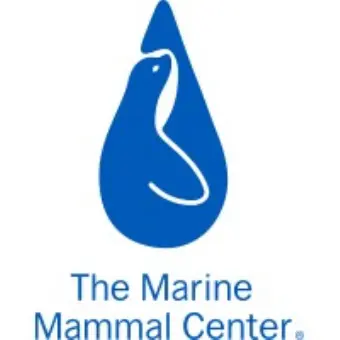Ocean Job Board


The Marine Mammal Center
Teaching Hospital
Location of Program: Marin Headlands, Sausalito, California
Reports to: Associate Pathologist, Dr. Maggie Martinez
Program Dates: January 5, 2026 – December 31, 2026, with potential to extend into a second year.
Position Classification: This is a fixed-term, full-time position.
Compensation: $81,120 - 90,000 annual
Benefits: Holidays, Sick time, Vacation, Medical, Dental, Vision, Life Insurance, Long Term Disability Insurance, 401k Retirement Plan, Employee Assistance Program
Program Overview
The Diagnostic Pathology Fellowship at The Marine Mammal Center will begin January 5, 2026, and is a 1-year, full-time fellowship open to veterinary anatomic pathologists, ACVP or ECVP board-certified or boards eligible, interested in gaining diagnostic experience in marine mammal pathology.
Application period is open through November 10, 2025. The selection process will occur in November 2025, with notification to applicants to follow by end of November 2025 with anticipated fellowship start date on January 5, 2026.
The Diagnostic Pathology Fellow at The Marine Mammal Center is primarily service-oriented, with an emphasis on diagnostic casework, necropsy, histopathology, cytology, and data quality. This role will perform necropsies, trim formalin-fixed specimens, interpret histopathology, gain experience with cytology and clinical laboratory techniques and interpretation, and participate in necropsy reporting, database entry, and quality control. The anatomic pathology service provides training under the supervision of board-certified pathologists, with the goal of developing independent diagnostic skills while contributing to the Center’s pathology case load.
While the primary focus is on service responsibilities, the Diagnostic Pathology Fellow may have opportunities to present case reports or series at conferences, conduct a small independent research project, or contribute to ongoing collaborative studies. This role will work closely with veterinary staff, researchers, and training participants, and may assist in mentorship of externs or visitors throughout the year.
The majority of postmortem cases at the Center include pinnipeds (phocids and otariids), with occasional large and small cetaceans and sea otters. This fellowship is designed to strengthen diagnostic expertise in marine mammal pathology while advancing the mission of The Marine Mammal Center.
Essential Functions:
Necropsy: 40%
Histology: 40%
Training & Educational Outreach: 10%
Research: 5%
Other Duties as Assigned: 5%
Qualifications and Experience
Physical Requirements
Work Environment
ABOUT THE MARINE MAMMAL CENTER
The Marine Mammal Center is leading the field in ocean conservation through marine mammal rescue, veterinary medicine, science, and education. The Center is the largest marine mammal Teaching Hospital in the world and a critical training ground for veterinary professionals, combining high-quality animal care with hands-on learning experiences.
OUR MISSION
The Marine Mammal Center advances ocean health through marine mammal rescue and rehabilitation, research, and education.
OUR COMMITMENT TO DIVERSITY
The Marine Mammal Center actively engages individuals from all backgrounds. We are committed to embracing diversity within our organization because we firmly believe that diverse employee teams help us to achieve our best organizational outcomes and provide the most effective support to the communities we serve. We are deeply dedicated to creating and maintaining an inclusive, equitable and supportive work environment. We strongly encourage people of color, lesbian, gay, bisexual, transgender, queer and non-binary people, veterans, parents, and individuals with disabilities to apply. The Center is an equal opportunity employer and welcomes everyone to our team. The Marine Mammal Center believes in growth and supporting our employees as best we can so they can become their best selves in and outside of work. We believe that a healthy work environment means building an inclusive culture where people can thrive together and feel supported and empowered. We believe in stretch versus constraint.
For more information, please visit our “About Us” page at www.marinemammalcenter.org
To Apply: Applicants must submit all the following materials to be considered for this program: incomplete applications will not be reviewed
1. Letter of intent that addresses the following prompts:
a. What are your professional goals and how will a fellowship at the Center contribute to achieving them?
b. What are your experiences in teaching and mentoring others as well as your approach to working collaboratively in a team?
c. In what ways can the study of disease and pathology in marine mammals help us better understand and protect ocean health?
2. Current Curriculum Vitae (CV)
3. Name, email address, and phone number of three professionals familiar with the applicant’s academic and/or clinical performance. The Marine Mammal Center will initiate the Recommendation Form with your references upon submission of your application. This will come from hr@tmmc.org directly to your references.